News reports suggest he was a fugitive and a criminal. Until recently, he was chairman of the United Democratic Party (UDP), which was set to field more than 1,130 candidates in November’s general election—almost as many as the ruling National League for Democracy (NLD).
The UDP, popularly known as the ‘Rose Party’, after its logo, is now without its key leader, former chairman Michael Kyaw Myint, who is now in custody facing charges of money laundering, flouting Myanmar’s business laws, and fleeing an earlier prison sentence handed to him under the military regime. The party has just been disbanded due to his illegal financial activities.
Some Myanmar observers who have met him over the years have dared not criticize him in public for fear of reprisal. Now that he is in jail, some sources who knew him 30 years ago say he is a triad figure well connected to Chinese transnational organized crime syndicates.
In Myanmar, many mafia members and other criminals live and thrive—though they mostly keep a low profile and don’t make public appearances. Many are involved in illicit trades but live in Yangon, Mandalay or Shan and Kachin states along the China-Myanmar border. Some have militia forces and strong business connections in China, and some are associated with criminal gangs or ethnic armed groups involved in both legal and illegal businesses. Michael Kyaw Myint is one such figure—but with a difference.
After returning from Canada, he established the UDP, known locally as the “Rose Party”, to contest elections in Myanmar.
Last year, according to political observers, the party began to expand its ambitions, becoming more aggressive in its public outreach.
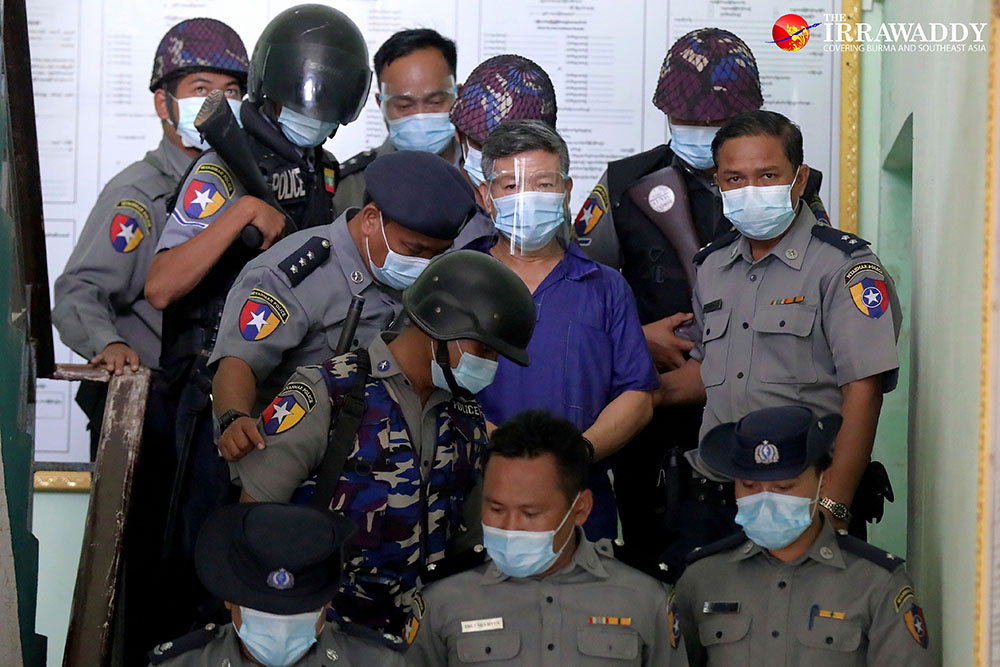
Suspicions were aroused when Rose Party signboards suddenly sprung up in Shan and Kayah states last year. Using its deep pockets to recruit new members, the party has developed a devoted following among some villagers in the ethnic states, though they are largely unaware of the existence of its shadowy chairman.
Since slipping back into Myanmar from China in 2013, Michael Kyaw Myint has bought several buildings and land plots in Yangon, Naypyitaw and Pyin Oo Lwin. A government spokesman said at a press briefing last week that, “He was able to save 33 million Canadian dollars [32.42 billion kyats] in bank accounts at CBC Bank, RDC Bank and TD Bank. After withdrawing all the cash, he took 18 million [Canadian dollars] and shared the remaining 15 million with his family.”
In Yangon, he moved around in a discreet manner (albeit with armed guards) and quietly approached and made informal alliances with several politicians.
Money laundering scheme
The government spokesman said Myanmar Kyaw Investment Group Co. Ltd. illegally received 16.315 billion kyats (about US$12.5 million) in 2015 via money transfer services operating on the Chinese border in Muse, Shan State, adding that the cash transfers were made by Chinese citizens in Ruili and Jiegao engaged in illegal money transfer services.
Michael Kyaw Myint has said his political background includes working for the United Wa State Party (UWSP). He also claims to be an adopted son (under the Kachin name Zakhung Zung Sau) of Zahkung Ting Ying, a powerful local militia leader in Kachin State. However, according to journalist Bertil Lintner, who has written several books on drugs and politics in Myanmar, Michael Kyaw Myint is not an ethnic Kachin but a Sino-Myanmar businessman. Indeed, he is a real scam artist and con man. But what is his motive for contesting the election?
Michael Kyaw Myint, a.k.a Michael Hua, married the youngest daughter of Zau Mai, an ethnic Kachin who had initially been with the Communist Party of Burma (CPB). When the CPB faced a serious mutiny in 1989, Zau Mai joined the United Wa State Army (UWSA), where he became a high-ranking officer.
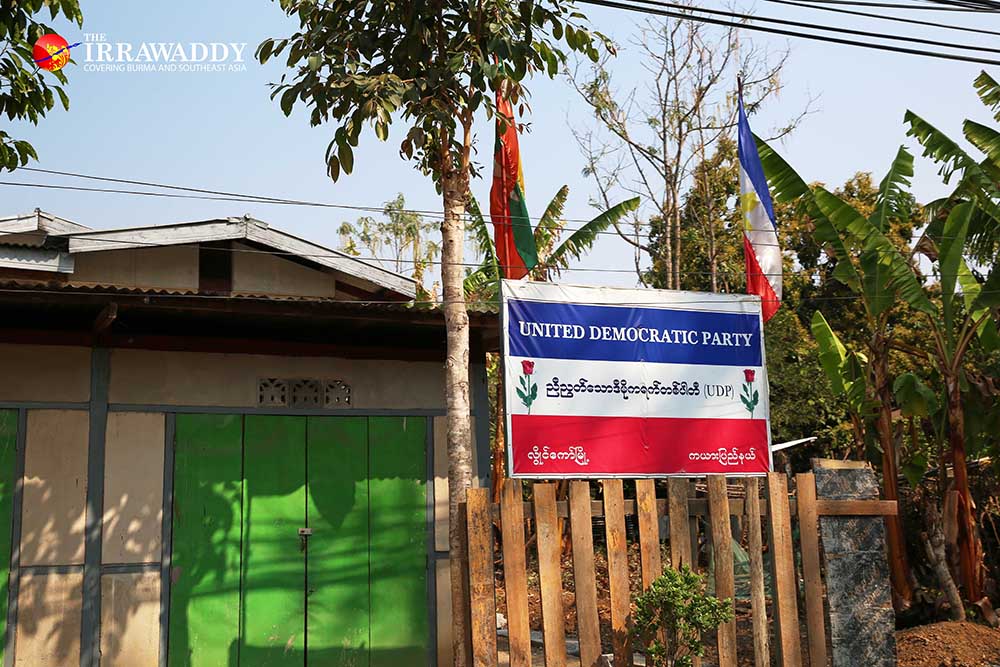
Wa leaders who reached a ceasefire agreement with the then powerful Military Intelligence department in the 1990s were allowed to engage in businesses including drug trafficking in Myanmar. But they needed someone based in Yangon.
Fluent in Burmese, Michael Kyaw Myint was chosen to travel to Yangon and set up companies and run businesses there to generate money for the Wa. In fact, the Wa asked Zau Mai to go to Yangon and set up the companies, but he asked his son-in-law to go to Yangon in his place.
Michael Kyaw Myint set up Myanmar Kyone Yeom, which was involved in money laundering in the 1990s. Around the same time, there were two other Chinese banks set up in Yangon, but in 1998 they and Myanmar Kyone Yeom were closed down over their involvement in money laundering.
The now-defunct Hong Kong-based magazine Asiaweek reported that a company run by Michael Kyaw Myint was laundering money for the UWSA, which was then heavily involved in the drug trade.
Michael Kyaw Myint became known to several government figures including high-ranking intelligence officers. He also recruited several ex-intelligence officers to work for his company. To this day, several ex-intelligence officers work his “Rose Party”.
In November 1998, Jane’s Intelligence Review reported that Michael Kyaw Myint, who claimed to be a deputy minister of finance for the UWSA, flouted Myanmar’s business laws. Myanmar Kyone Yeom was outlawed by the Myanmar Investment Commission and Michael Kyaw Myint was given a 10-year prison sentence.
The US State Department said in its “International Narcotics Control Strategy Report, 1998” released in February of that year that the Myanmar regime effectively suspended Myanmar Kyone Yeom for violating the Myanmar Company Act, although the government did not indicate that this was a counter-narcotics action.
Michael Kyaw Myint did not serve his full jail term and escaped. It was suspected that he bribed prison officers and escaped to Thailand.
Michael Kyaw Myint first went to Chiang Mai, where he established contacts with the US Drug Enforcement Administration (DEA). He knew movers and shakers in the notorious Golden Triangle drug trade and probably sold some information to the Americans. Wa leaders then were known to be heavily involved in the heroin and other illicit trades and were placed under US sanctions. By that time, the UWSA was being described by the DEA as “Southeast Asia’s leading heroin and methamphetamine trafficking organization”.
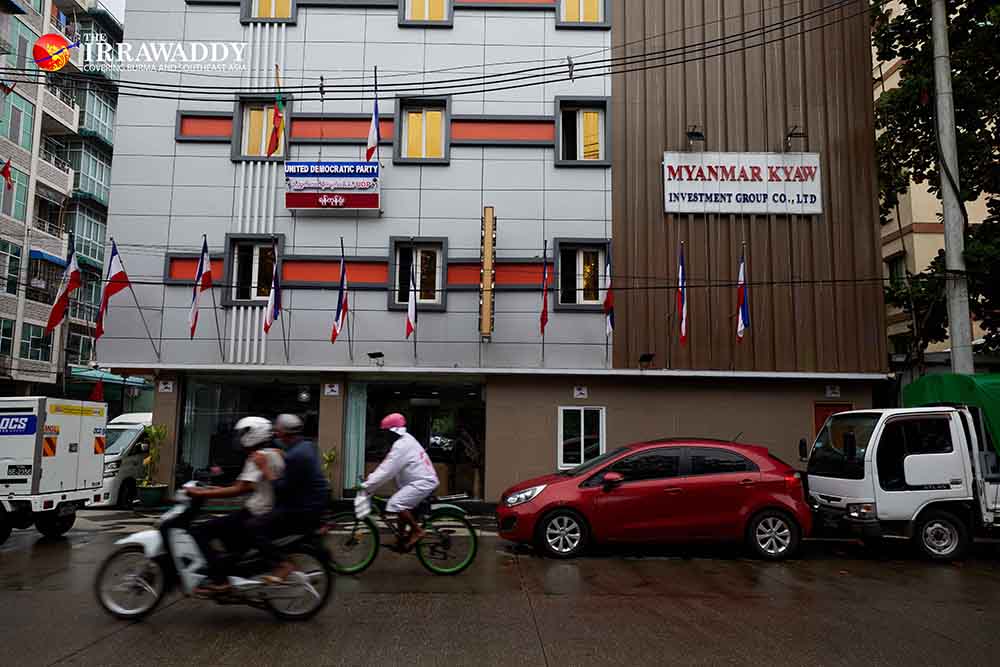
He then left for the US. In April 2009, Michael Kyaw Myint told the Vancouver Sun that the DEA had helped him obtain political asylum in the US and he moved to New Jersey, before moving to Canada in 2002, where he sought political asylum and lived in Vancouver. Why he decided to move to Canada is still unknown.
Michael Kyaw Myint set up numerous companies in Vancouver, including Maple Leaf Reforestation Inc.
In 2009, Michael Kyaw Myint came into the spotlight in Canada when trading in Future Canada China Environment Inc. was halted by the US Securities and Exchange Commission (SEC) when the value of the company’s stock rose rapidly to more than US$1 billion (6.5 billion kyats at the 2009 exchange rate).
The price jumped on the strength of a proposed merger with a company apparently connected to Michael Hua Hu (Michael Kyaw Myint), according to the report in the Vancouver Sun.
“The commission temporarily suspended trading in the securities of Future Canada China Environment Inc. because questions have arisen concerning recent trading activities in the company’s stock, during which its share price increased from US$0.92 to US$28.50,” the SEC announced in January 2009.
The commission cautioned brokers, dealers, shareholders and prospective purchasers to carefully consider the details along with any information subsequently issued by the company.
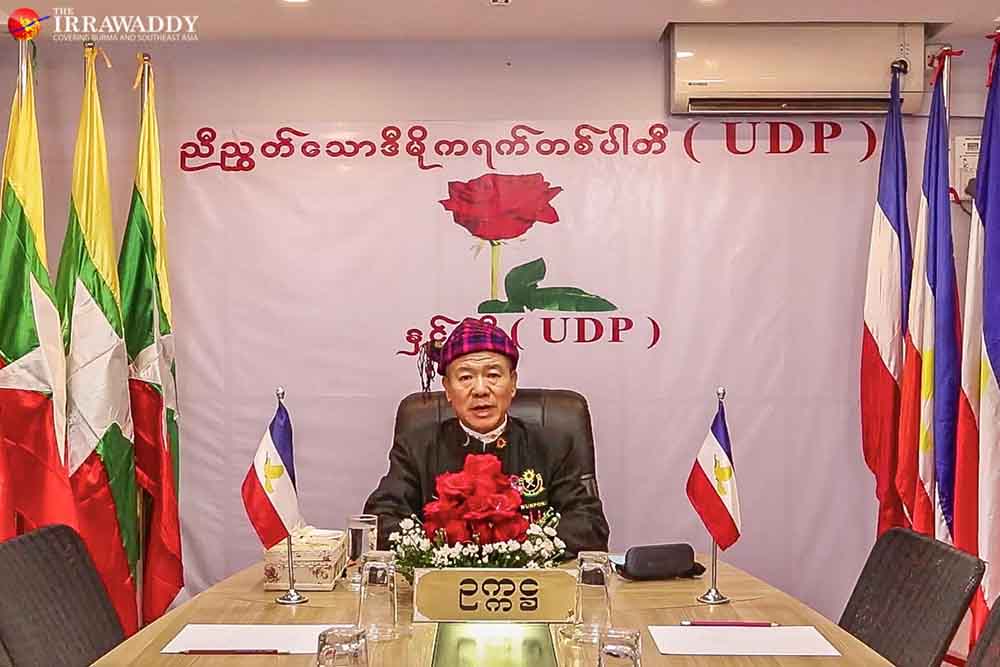
“The company has negligible assets and no operating business. Its stock price ostensibly jumped on the strength of a proposed merger with a company that appears to be connected to Michael Hua Hu, a former Burmese businessman now living in Vancouver,” the Sun reported in February 2009. In response to The Irrawaddy’s reporting on these issues, Michael Kyaw Myint threatened to sue the publication in that year. This publication first reported about him in 2004, when Michael Kyaw Myint was demanding a public apology from Time Inc. for an article that appeared in the Jan. 23, 1998 edition of Asiaweek (which was owned by Time Inc.).
In 2011, the British Columbia Securities Commission (BCSC) panel added him to a “disciplined list”, which means it permanently banned Michael Kyaw Myint from the Canadian province’s securities markets, and fined him US$1.5 million for engaging in illegal insider trading and making false and misleading statements to investigators.
The BCSC panel found that Michael Kyaw Myint, while a director and chairman of Maple Leaf Reforestation, bought shares in the company while in possession of undisclosed material information about a biodiesel project (known as the Xinjiang project) that Maple Leaf was negotiating in China. The panel also found that he made false and misleading statements to commission staff when he denied knowing the individual who held the online brokerage account that Michael Kyaw Myint used to make the purchases.
He denied allegations of drug dealing and money laundering in a statement.
“I, U Kyaw Myint, have never conducted or been involved in the illegal drug business or money laundering business in my life,” said the statement on his website. He stated: “All my businesses in North America and Asia are legal.”
Interestingly, while in Canada he maintained his interest in politics in Myanmar. He made friends with several activists living in the US and Canada, even hiring them to work for his company.
He moved to China in 2012 and stayed in Kunming city, from where he exported construction materials, household commodities and tricycles to Myanmar. He also made 30 billion kyats worth of investments in Myanmar merchants. He entered Myanmar via Muse in 2013. His border crossing was made easy thanks to his Myanmar National Registration Card, issued on the recommendation of Military Intelligence back in the 1990s. The immigration officials there had no idea about his fugitive past; the road to Yangon was open, and it was at this time that he established the Myanmar Kyaw Company.
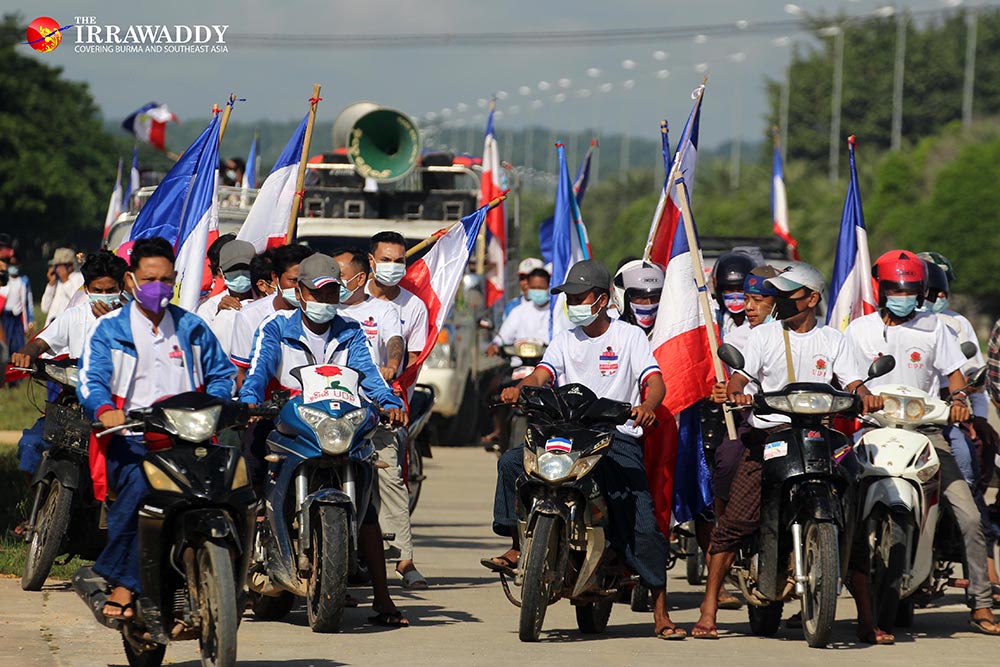
Back to Myanmar
Ahead of Myanmar’s general election in 2010, the fugitive recruited a number of politicians in Myanmar and established the UDP inside the country. U Thu Wai, a veteran politician, and U Ye Tun, a well-known businessman in Yangon, were named chairman and vice chairman of the party—both have since left the party. In an interview with The Irrawaddy in 2015, U Thu Wai said Michael Kyaw Myint was close to some Myanmar diplomats, including the ambassador and a military attaché in the US, and they issued the papers that enabled him to return to Myanmar. Some allege former government leaders including then President Thein Sein allowed him to come back to Myanmar under an amnesty. U Thein Sein once served as a regional commander in the Golden Triangle, and it is suspected that he might have known Michael Kyaw Myint but there is no evidence. But like many Wa leaders, Michael Kyaw Myint seemed to have established close connections with top intelligence officials in Myanmar in the past.
The UDP is no newcomer to the political scene in Myanmar. The party also contested the 2015 election but it failed, as it did in 2010. But at that time it seems Myanmar’s Union Election Commission and top security officials were slumbering, given their failure to check Michael Kyaw Myint and his background.
But those who know him say Michael Kyaw Myint is dangerous.
He remains close to his former business associates, the Wa and the Chinese mafia. Pro-NLD sources accuse him of being a Chinese spy but there is no proof of this. However, Michael Kyaw Myint held a high-profile meeting with China’s then ambassador to Myanmar, Yang Houlan, in December 2013.
A note on the meeting was posted on the Chinese Embassy’s website. It said: “They had extensive discussions on the recent development in Myanmar’s political, economic and social life as well as the proposed exchanges between two countries and parties. Both sides agreed to promote people-to-people communications and mutually beneficial cooperation in the future.”
The question that arises from all of this is whether there is a larger plot to subvert Myanmar’s fragile transition process? And if so, who is involved?
You may also like these stories:
‘Vocabulary Crisis’ Creates Yet Another Hurdle for Myanmar’s Federalism
Man With Shady Background Behind a Political Party in Myanmar
Amending Myanmar’s Constitution: an Issue That Will Not Go Away

















